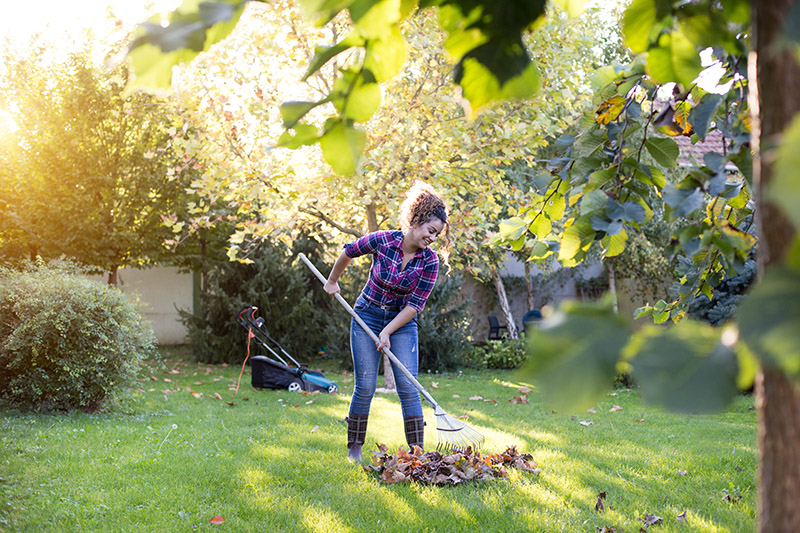
Fort Bend County Master Gardeners Offer Expert Gardening Tips for November
If you have been seeking expert gardening tips for November, look no further than these hyperlocal tips from trusted, trained experts with the Fort Bend County Master Gardeners. In partnership with Texas A&M AgriLife Extension, Master Gardeners offer a unique perspective on virtually all horticultural topics, tailored to the area in which you live through chapters across the state of Texas. Your local chapter, the Fort Bend County Master Gardeners, is a treasure trove of evidence-based, trusted advise to ensure a healthy, thriving and beautiful garden right here in Fort Bend County.
Check out the guide below to hear from your local chapter about everything you need to know to maintain and enhance your yard during the month of November.
By Fort Bend County Master Gardeners
What tasks should you be considering for November? Here are some suggestions.
- Don’t throw away that Halloween pumpkin! Squirrels love pumpkins. Instead, put the pumpkin at the back of your garden to be enjoyed by wildlife or put it in your compost pile. Whichever you choose, you should break it up first. Learn more about using pumpkins to feed wildlife.
- November is a great time to plant roses and woody ornamental shrubs. Their roots can get established before the colder winter months giving them a head start over shrubs that are planted in the spring. Just remember to protect them if an unexpected early frost comes. Choose Earth-Kind roses at https://aggie-horticulture.tamu.edu/earthkindroses/.
- Fall is an excellent time to plant bulbs for spring blooms. Daffodils, tulips and more can be a delightful spring surprise. Learn more.
- As your leaves fall from the trees, you might be tempted to bag them and send them to a landfill. Instead, consider these Earth-Kind® principles to handle yard waste.
- Now that the heat has passed and the weather is cooler but not cold, add a layer of mulch to your garden beds. This will help protect the roots from freeze damage in the coming winter months. As added benefits, mulch helps control weeds reducing your weeding work and helps soil retain water reducing your watering needs. Two to six inches of mulch are recommended depending on the type of mulch and the garden bed. Learn more about mulching from Aggie Horticulture.
- Take care of your winter vegetable garden. Winter vegetables still need to be fertilized. Also, if there is little rain, make sure to water as needed. November is also the right time to plant certain winter vegetables, including turnips, lettuce, radishes, and spinach. Check out the fall vegetable gardening guide for more information.
- If you want to transplant a shrub, late November is a good time to do so. Because the plants are dormant, they will not suffer as much shock as transplanting during their growing season. Learn about safely transplanting shrubs.
- If you have tender plants that you want to protect from the winter, consider digging them up and putting them in pots that can be easily moved into protected spots during freezes. Learn the recommended techniques for protecting plants from frosts and freezes.
- November is the right time to plant carrots, lettuce, onion, and parsley. Radishes, and spinach can also be planted in the first few weeks of the month. Visit the Fort Bend County Vegetable Garden Planting Guide for more information.
- Gather up materials to protect immovable plants during freezes. Learn how to protect your plants.
- If you have not already done so, trim your tropical milkweed and keep it trimmed to 6 inches throughout the rest of the fall and winter months. This discourages Monarch Butterflies from laying eggs that will not have time to fully develop. Learn more about milkweed at https://citybugs.tamu.edu/2015/03/05/for-monarchs-not-all-milkweeds-are-equal/.
- Consider turning your automated irrigation system off or reducing the watering times. Your plants are growing less and there is more rain so less water is needed. Learn more about fall lawncare at https://agrilifetoday.tamu.edu/2019/10/14/fall-lawncare-can-improve-springsummer-turfgrass/.
- If you are thinking about hard pruning your crape myrtles this month…don’t! Master Gardeners do not recommend this. We call this “crape murder.” Learn how to properly prune your crape myrtle at https://www.youtube.com/watch?v=IOLmiVlKJIU.
- If you are planting trees this fall, check out the Texas Tree Planting Guide to find the best trees to plant for our area.
- Have a great Thanksgiving!
November Color in Fort Bend County
Looking for a great Texas Superstar® to plant for this time of the year? The Tidal Wave™ Silver and Cherry Petunia (Petunia x hybrida ‘Tidal Wave Silver’ and ‘Tidal Wave Cherry’) will bring color to your fall landscape.
These annual plants can be planted in October or November for late-winter and early-spring color. These vigorous petunias are more heat, disease, and cold tolerant than your typical petunia and will make a nice addition to the front of your garden. Here is more information:
- Grows in full sun
- Grows to height of 18 – 20 inches and can spread up to 4 feet
- Works well in most soils
- Thrives with regular drip irrigation and fertilization
For more information about Texas Superstar® plants, visit http://texassuperstar.com/.
Even as the weather cools, you can still brighten up your garden. You just have to choose the right plants. Here are some more plants to consider.
- Johnny-Jump-Up (Viola tricolor) – This cheery cool season annual is a miniature pansy with blue, yellow and purple tricolor blossoms. It only grows to a height of 4 – 8 inches and blooms best in full sun or part shade.
- Cool Season Euphorbias (Euphorbia martini, E. characias subsp. Wulfenii, E. amygdaloides) – This Texas Superstar® is a winter annual that is both cold and drought tolerant. It grows in full to part sun to a height of 1 to 2 feet. With seven different varieties to choose from, you can select the foliage, colors, and accents that complement your garden. They grow in tight mounds and are very pest and disease resistant.
- Ornamental Cabbage or Kale (Brassica oleracea) – This lowgrowing Earth-Kind® plant grows in rosettes of colors varying from white to green to vivid purple adding pops of visual interest and color to the front of your garden. In the spring pale yellow flowers will grow on bolted stalks above the plant.
- Lacey Oak (Quercus glaucoides) – If you would like to have more fall color in your landscape, this is the tree for you. Its foliage turns a lovely yellow in the fall. It is a smaller tree that will fit into many landscapes and is a Texas Superstar. The Fort Bend Master Gardeners demonstration gardens are currently undergoing renovation but feel free to visit our demonstration gardens for ideas. We do request that you keep your distance from Master Gardeners as they work in the gardens (for their safety and to make sure they keep working). For more information, look on our website at https://fbmg.org/demonstration-gardens/.
The Fort Bend Master Gardeners demonstration gardens are currently undergoing renovation but feel free to visit our demonstration gardens for ideas. We do request that you keep your distance from Master Gardeners as they work in the gardens (for their safety and to make sure they keep working). For more information, look on our website at https://fbmg.org/demonstration-gardens.








